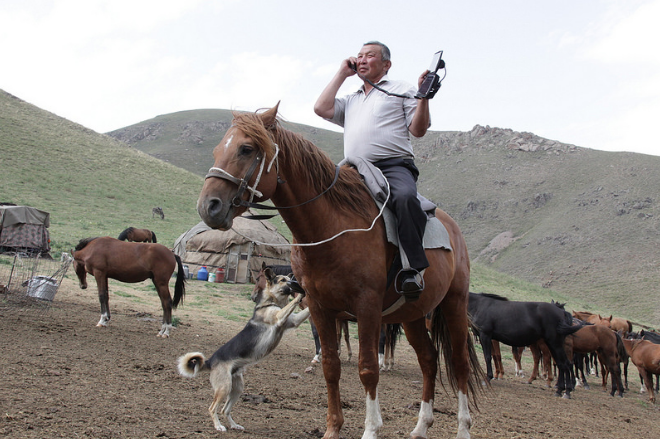Supporting Kazakhstan to advance their NAP process
Project Overview
Sep 2015
Kazakhstan submits their Intended Nationally Determined Contribution (INDC) to the Paris Agreement
Jun 2016
Kazakhstan participates in the Eastern Europe, Caucasus and Central Asia Regional Workshop on the NAP Process, held in Chisinau, Moldova
Jun 2016
Government of Kazakhstan requests support to develop a NAP as a way to facilitate effective planning for climate change
Oct 2016
NAP-GSP undertakes a mission to Kazakhstan to conduct a rapid capacity assessment in consultation with stakeholders, to identify the needs to be addressed by the NAP process
Nov 2016
A Stocktaking Report, including a roadmap for the NAP process is produced
Dec 2016
Kazakhstan ratifies the Paris Agreement
Jul 2018
Kazakhstan begins drafting a Readiness proposal to submit to the GCF for potential funding to support the NAP process
Country background, Sustainable Development Goals and Paris Agreement
The Republic of Kazakhstan is the world’s largest landlocked country, and ninth largest overall. Its climate is characterised by scorching summers and equally harsh winters with its highest temperature recorded as 49°С (1995) and lowest -57°С (1931). The Kazak economy, the largest in Central Asia, is primarily driven by its oil reserves, and has industrialised significantly over the last three decades. Around 61 percent of its workforce is employed by the services sector, while only 18 percent work in the agricultural sector, down from 45 percent in 1991. With this shift has come reductions in the poverty rate, which decreased from 64 percent in 2001 to 7 percent in 2015. Despite such gains, however, Kazakhstan has begun to experience an increasing number of droughts, floods, landslides, mudflows and ice jams as a result of climate change, which threaten the advances made by the country’s development. Water resource management especially, will become ever more critical, with its high irrigation demands – currently 90 percent of national water consumption - set to become problematic as changing rainfall patterns increase the intensity and frequency of droughts.
Consequently, the Government of Kazakhstan is actively addressing the oncoming threats of climate change to protect and advance the development gains made over the last few decades. The Concept of Transition of the Republic of Kazakhstan to Sustainable Development is a key policy document that guides the country’s efforts to achieve the Sustainable Development Goals. The Department of Climate Change is also a critical cog in the institutional mechanism and is mandated to coordinate technical issues related to climate change, although it is primarily focused on mitigation planning and action. The country’s INDC, which later became their First NDC when they ratified the Paris Agreement in 2016, is also heavily focused on mitigation and does not consider adaptation activities.
However, Kazakhstan’s Third-Sixth National Communication to the UNFCCC does present feasible adaptation measures for a number of sectors. The document emphasises that the agriculture is expected to be worst hit by climate change as a result of soil degradation, desertification and decreased freshwater resources, and lays out anticipated adaptation interventions for its priority sectors: agricultural, water resources, health and natural resource sectors. Furthermore, in 2016 the government initiated the process of developing a NAP, that seeks to provide sector-specific guidance for the greater integration of adaptation considerations into policies and programmes.
How has the NAP-GSP supported to date?
|
Undertook a preliminary mission to Kazakhstan |
Based on an extensive desk review, the mission was conducted between 19 – 21 October 2016 and conducted a preliminary assessment of relevant initiatives on climate mainstreaming and of the institutional framework and capacities relevant to the NAP process, through a stakeholder roundtable, qualitative interviews. The mission built upon Kazakhstan’s participation in the Eastern Europe, Caucasus and Central Asia Regional Workshop on the NAP Process, which was held on 28 – 30 June, 2016 in Chisinau, Moldova, supported by UNDP and the NAP-GSP. |
|
The Production of a Stocktaking Report |
Informed by the mission, the Stocktaking Report and Preliminary Roadmap / Concept for Advancing the NAP Process in Kazakhstan was developed and shared with the various stakeholders for review and commenting. The key gaps and barriers to be addressed that were outlined in the report were: (i) the lack of a legal climate change adaptation (CCA) framework; (ii) CCA data is fragmented, not collected in a coordinated manner, and not fully accessible to relevant ministries and other users; (iii) planners and decision-makers lack tools and frameworks that facilitate the mainstreaming of climate risks into existing national processes and systems; (iv) lack of domestic capacity within and across government agencies and research institutions; (v) there is no existing monitoring and evaluation framework for adaptation; and (vi) awareness of CCA is limited and the capacity to design, fund, and manage programmes and projects at national and local levels is lacking.
|
|
Helped build capacity and facilitated access to additional climate finance
|
The Readiness and Preparatory Support Proposal, was submitted in August 2017 to the Green Climate Fund (GCF), presents a request for funding to support: institutional capacity assessment and strengthening; stakeholder engagement; training of the Ministry’s staff and other interested central and local authorities; information and awareness raising; as well as the setting up of a GCF proposal review system.
|
Country Initiatives
Reports and Publications
Project Brief / Fact Sheet
National Adaptation Plans in focus: Lessons from Kazakhstan
Submitted by esther.lake@undp.org on 01 December 2018

